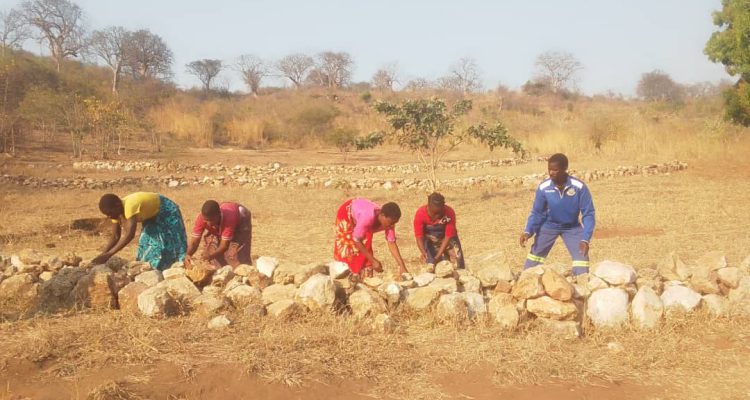
Over 10,000 hectares of degraded land and forest in Balaka are set to undergo a significant transformation, thanks to the Malawi Watershed Improvement Services Project (MWASIP) being carried out by the Government of Malawi.
During a media tour of Village Action Plans (VILAP) under the Rivirivi River catchment, community members praised the project as a groundbreaking initiative in land restoration as well as enhancing agricultural productivity.
“This project is a remarkable development as far as the restoration of degraded land is concerned,” said Soft Sani, Chairperson of Mtendere VILAP in Traditional Authority Msamala.
He highlighted the area’s struggles with dry spells and inadequate yields.
“Our area is always hit hard by dry spells due to erratic rainfall, which is a direct repercussion of land degradation,” Sani explained.
However, he expressed optimism about the project’s potential.
“We believe that various interventions being carried out under this project will significantly enhance agricultural productivity.”
Sani also emphasized the importance of innovative conservation practices which has earmarked 5,000 farmers as beneficiaries.
“We have been equipped with innovative conservation agriculture activities to enable us to beat the challenges that come with climatic conditions,” he said.
Among others, the project has trained participants to construct stone bunds along contour ridges, box and ridges and care for naturally regenerated trees, all in a quest to maintain the moisture content in crop fields and also to control water run-off.
The project is also supporting cooperatives to boost various farming enterprises such as beekeeping and pig production through the provision of financial grants.
A 52-member Nankhombe cooperative is among the five cooperatives on the verge of securing matching grants from MWASIP to enable them to boost their farming enterprises.
“Our cooperative has been identified as one of the successful recipients of a grant worth K37 Million,”
“We intend to use this grant to venture into piggery production and we aspire to be among the top producers of pork meat in the country,” said Salim Makiyi, Chairperson of the cooperative.
According to Lukresia Matekenya, MWASIP district coordinator in Balaka, the project is poised to make a lasting impact on the lives of communities in the district, and its success is a testament to the power of collaborative efforts in restoring degraded landscapes.
“It is encouraging to note that these participants are voluntarily working without expecting any penny in return.
“They understand the problems at hand and together, they have taken a collaborative approach to counter-attack the problems,” said Matekenya.
Meanwhile, Director of Agriculture in Balaka, David Alli anticipates the project to reduce the burden of persistent drought which the district experiences every year.
MWASIP is a World Bank-funded project aimed at supporting the implementation of the National Forest Landscape Restoration Strategy ( NFLRS) and three components which are scaling up landscape restoration, improving watershed services and technical and project management support.














